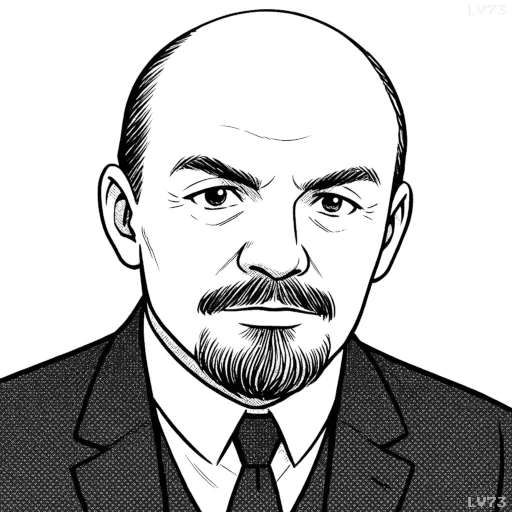“There are no morals in politics; there is only expedience. A scoundrel may be of use to us just because he is a scoundrel.”

- April 22, 1870 – January 21, 1924
- Born in the Russian Empire
- Revolutionary, political theorist, lawyer, state leader
table of contents
Quote
“There are no morals in politics; there is only expedience. A scoundrel may be of use to us just because he is a scoundrel.”
Explanation
This quote reflects Lenin’s realpolitik approach to politics, where pragmatism and the pursuit of power take precedence over moral considerations. Lenin argues that political actions should be guided by the needs of the revolution and the goals of the state, rather than abstract ethical principles. In his view, morality in politics is secondary to achieving practical results. A “scoundrel” — someone considered morally reprehensible or unscrupulous — may still be useful to the cause because they serve the immediate goals of the revolution or state. Lenin’s philosophy underscores his belief that revolutionary movements often require difficult compromises, and moral purity can sometimes become an obstacle to the pursuit of political objectives.
Historically, Lenin’s approach was shaped by the harsh realities of the Russian Revolution and the early years of Soviet rule, when the Bolsheviks were confronted with internal and external enemies. In this context, Lenin justified alliances with individuals or groups who were otherwise seen as undesirable, if their actions could advance the revolution. For example, during the civil war, the Bolsheviks cooperated with former Tsarist officers, whose loyalty to the revolution was dubious, simply because their military expertise was crucial to the survival of the Soviet state. Lenin saw the use of such figures as pragmatic, driven by the immediate needs of the revolution, rather than any moral judgment.
In modern contexts, this quote resonates with realpolitik leaders who prioritize practical outcomes over ideological consistency. It has been echoed in various political situations where ethics and ideals are sacrificed for tactical reasons, such as in alliances with morally questionable figures in order to achieve political or strategic goals. However, this approach raises significant ethical dilemmas about the long-term consequences of such alliances, as it can lead to compromising the values that initially motivated the movement. Lenin’s statement challenges us to consider the balance between expedience and ethics in politics, particularly when pragmatic decisions may undermine moral principles or public trust.
Would you like to share your impressions or related stories about this quote in the comments section?
